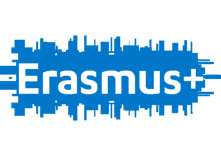What makes someone an exceptional employee? Is it competency in technical aspects of his or her
position?Certainly. Sufficient education? Of course. Soft skills?Absolutely!
According to CareerBuilder(www.careerbuilder.com), 77% of employers say that soft skills are just
as important as hard skills. Three out of four of the companies have noted that there is a serious ‘soft
skill gap’ since the employeers have some difficulties finding the employees having them in labour
market.These skills are critical to young people’s success in the workplace and their development in
all domains of life.
The employers look for skills such as management/leadership , team work, problem
solving,entrepreneurship,decision making and critical thinking on their employees. But soft skills are
poorly understood, not well assessed, and all too often overlooked by school policies.
The questionnare applied to students in all involved schools aged between 15-18 showed that %74.2
of them has none or insufficient amount of these soft skills.
It is clear that as the age scale rises, the productivity of education reduces and the trainings prove to
be less effective on people in their 30s than they do on young people. After a certain age, trainings
work only for raising awareness not for developing.
These skills are a critical part of young adolescents’ lives, therefore secondary school is a perfect
place and correct time to incorporate soft skill development into the school day.
As educators, it is important to help guide students down a desired career path. When they know
their destination, we can help plot a path for success. This path begins with helping them to know
what skills are required for their desired job. As we help students connect the dots with what they are
doing now with in the classroom, it has a direct correlation with where they want to be in the future.In
our project, pupils will develop soft skills(management/leadership, teamwork self-confidence,critical
thinking,decision making,problem solving) through interactions with others.
The “30 is too late” is a project aimed at facilitating future employability that is prepared in the name
of developing the soft skills, required by business world.Students will be more engaged and willing to
develop these skills that will benefit them for the rest of their life. However activities to increase the
uptake of subjects where skills shortages exist and improve career guidance are the priorities of the
ERASMUS+ PROGRAM.To be able to contribute to the EU 2020 educational policy objectives, it is
essential for the institution and the organisations to cooperate with each other. That is why we are
actively forming strong ties with partner schools who meet the same standards of quality education
as we hold to ourselves.’30 is too late’ will enable us to work on exchange programs and good
practice with schools that share our passion to improve educational quality.01

30 IS TOO LATE
Publicado em por administrador
0
